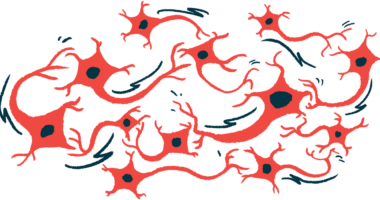Project Hope Opens UBC Chair to Draw ALS Trials to British Columbia

To further support amyotrophic lateral sclerosis (ALS) patients through research and clinical studies, the Canadian province of British Columbia is giving CA$2 million (about $1.65 million) to the ALS Society of BC to support a collaboration called Project Hope.
In partnership with the University of British Columbia (UBC), Project Hope will establish a permanent ALS research professorship at UBC for a clinician/scientist, who will offer patient care, and strengthen research investigations with the aim of increasing patient access to clinical trials in the province.
“For the first time in nearly a decade, British Columbians living with ALS will soon have a chance to participate in potentially life-changing research close to home,” Adrian Dix, the province’s health minister, said in a press release.
“For 40 years, the ALS Society of BC has been dedicated to providing support to patients and their families and works to improve the quality of life for people living with ALS,” Dix added. “Now, through Project Hope, they are giving more hope to people with ALS by supporting clinical trials right here in B.C.”
Clinical trials, a part of clinical research, are at the heart of medical advances. The goal of such trials is to determine whether a device, procedure, or pharmaceutical therapy works and is safe. These studies may also test new ways of using existing treatments and other aspects of care. Or, as an observational study, would simply record daily life with a disease over time, providing important data for scientists and doctors working in that disease.
Of the more than 80 late-stage clinical trials in ALS underway, most are taking place outside of Canada and “none” are in British Columbia, the LS Society of BC notes on its Project Hope webpage. As a result, patients who want to participate in these studies, along with their families or caregivers, need to undertake often difficult and possibly costly travel.
“As somebody living with ALS, it feels great to know that our needs are recognized by the provincial government and UBC,” said Brad MacKenzie, chair of the ALS Society of BC’s advocacy committee. “Now that Project Hope is successful, British Columbians living with ALS, myself included, should feel proud that we will soon have more local access to cutting-edge, world-class clinical trials for the disease.”
The clinician/scientist research professorship will be based at UBC’s Djavad Mowafaghian Centre For Brain Health, where research is underway into Alzheimer’s and Parkinson’s. The addition of ALS will allow for collaborative work on these three neurodegenerative disorders.
Project Hope has achieved its CA$5.3 million goal with the support of the province and donors worldwide, the association announced, allowing the ALS research professorship at UBC to be established and endowed.
“This investment represents an unprecedented opportunity to accelerate the translation of ALS research to patient care, bringing hope to patients and families,” said Dermot Kelleher, MD, dean of UBC’s faculty of medicine and vice president of health.
Last year, the provincial government gave $1 million to the ALS group to support its efforts to improve care for the roughly 400 people in British Columbia living with ALS. Its Ministry of Health also bought the ALS therapy Radicava (edaravone), approved for Canada in 2018, into the province’s public health plans in August 2020.






